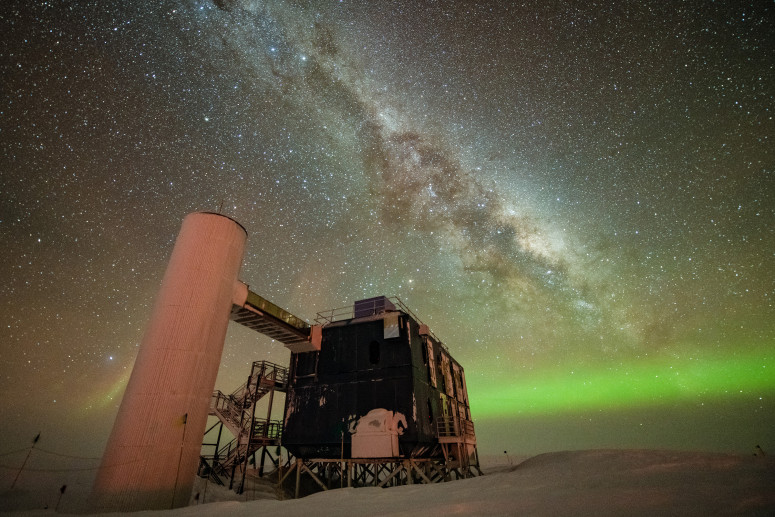07 Dec Federal physics advisory panel recommends funding next generation IceCube observatory, other major experiments

A view of the IceCube Lab with a starry night sky showing the Milky Way and green auroras. Photo By: Yuya Makino, IceCube/NSF
A group of scientists tasked with advising the federal government’s investments in particle physics research is recommending that the United States fund a planned expansion of the IceCube Neutrino Observatory, an international scientific collaboration operated by the University of Wisconsin–Madison at the South Pole.
The recommendation from the Particle Physics Project Prioritization Panel, or P5, joins other major research priorities in the field. They include support for a separate neutrino experiment based in Illinois; continuing investment in the Large Hadron Collider in Switzerland, the Rubin Observatory in Chile and the global Cherenkov Telescope Array; and development of a next generation of ground-based telescopes to observe the cosmic microwave background.
UW–Madison physicists have leading roles in the Illinois project, called the Deep Underground Neutrino Experiment, along with multiple Large Hadron Collider projects, Rubin Observatory and Cherenkov Array. The recommendations are included in a draft report published Dec. 7.
The P5 advisors include theoretical and experimental physics researchers from institutions around the U.S. Among them are two UW–Madison faculty members: physics professors Tulika Bose and Kyle Cranmer. Cranmer is also director of the UW–Madison Data Science Institute.



